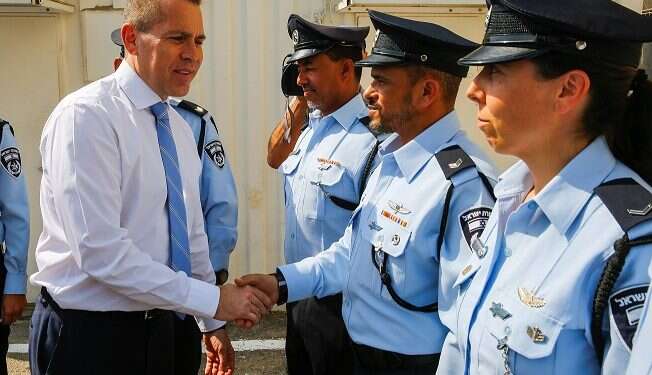Public Security Minister Gilad Erdan has reached out to the chief rabbis of Israel and asked that they alter the "Mi Sheberakh" prayer for the safety of soldiers, which is recited in synagogues throughout Israel every Saturday, to include the police.
"Mi Sheberakh" was updated to include IDF soldiers and other security forces by the late Ashkenazi Chief Rabbi and IDF Chief Rabbi Shlomo Goren, but does not specifically mention the police.
Erdan wants the prayer changed to make reference to the country's police forces and wrote to Chief Rabbis Yitzhak Yosef and David Lau, asking them to issue instructions that the prayer reference the police.
"It is my belief that this is a moral obligation toward the police," Erdan wrote.
The first part of the prayer refers to "the soldiers of the Israel Defense Forces, who stand guard." In his letter to the rabbis, Erdan argues that "the watch guards of our time are the Israel Police and the Border Police," who he said were willing to sacrifice themselves for the country.
"Our policemen and policewomen are on the front lines of the war on terrorism, and unfortunately pay the heaviest price. In recent years, we have all learned of the heroism of Hadar Cohen and Hadas Malka [both of whom were killed battling terrorists in Jerusalem] and other police officers who saved lives and sacrificed themselves to defend the country," Erdan wrote.
"Therefore, it is natural and appropriate that prayers for their safety and well-being be recited in synagogues," Erdan said.
Erdan cited the names of other police officers who, he said, "paid the heaviest prices of all while attempted to protect Jerusalem and those who visit it at this time, in the face of murderous terrorism."
"There are many aspects of strengthening Jerusalem and Israel, and they include raising the spirits of those who defend the country by praying for their well-being," Erdan wrote, adding that Israel Police Commissioner Roni Alsheikh and Israel Police Chief Rabbi Cmdr. Rami Brachyahu both wanted the prayer to include members of the nation's police forces.
During the Second Intifada, the prayer was changed to read "and members of the security forces" and "in every place," but that version was not accepted in all synagogues.




